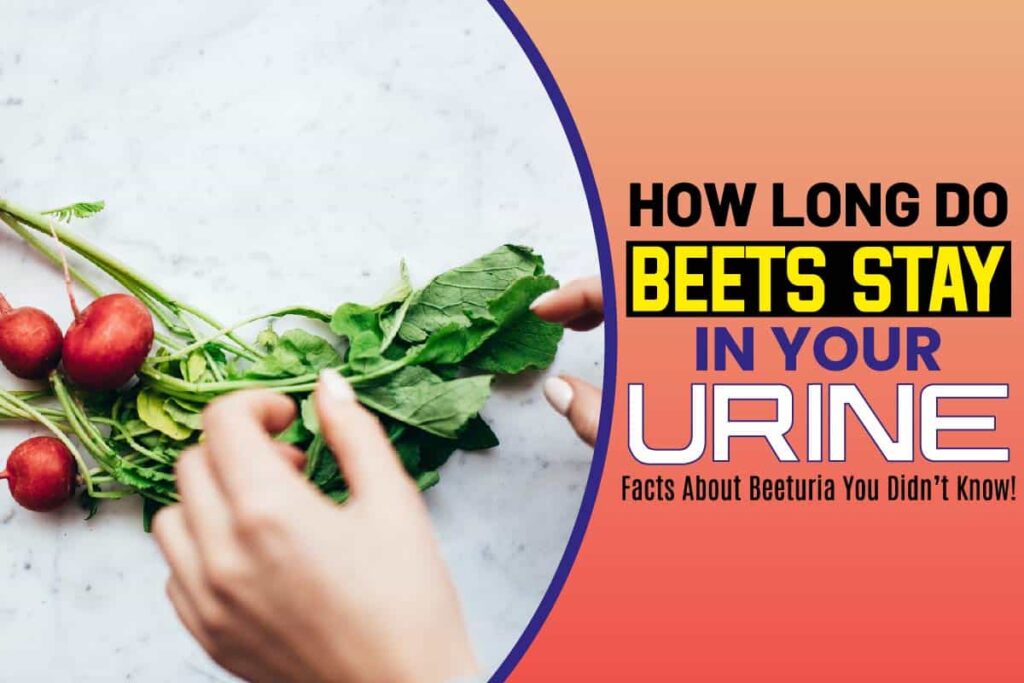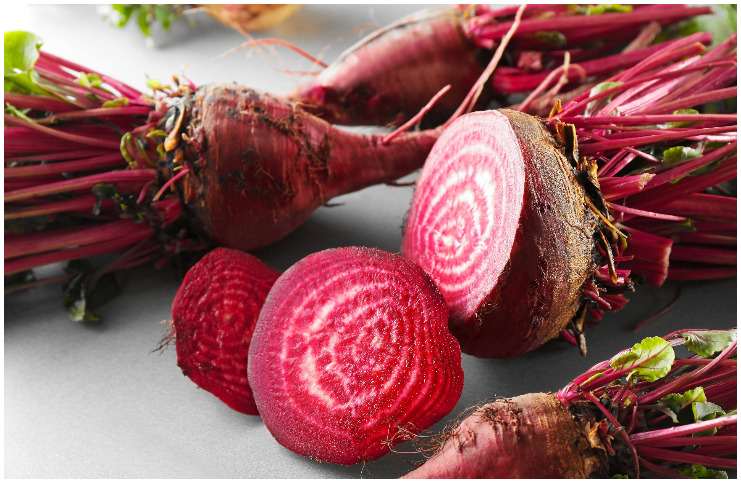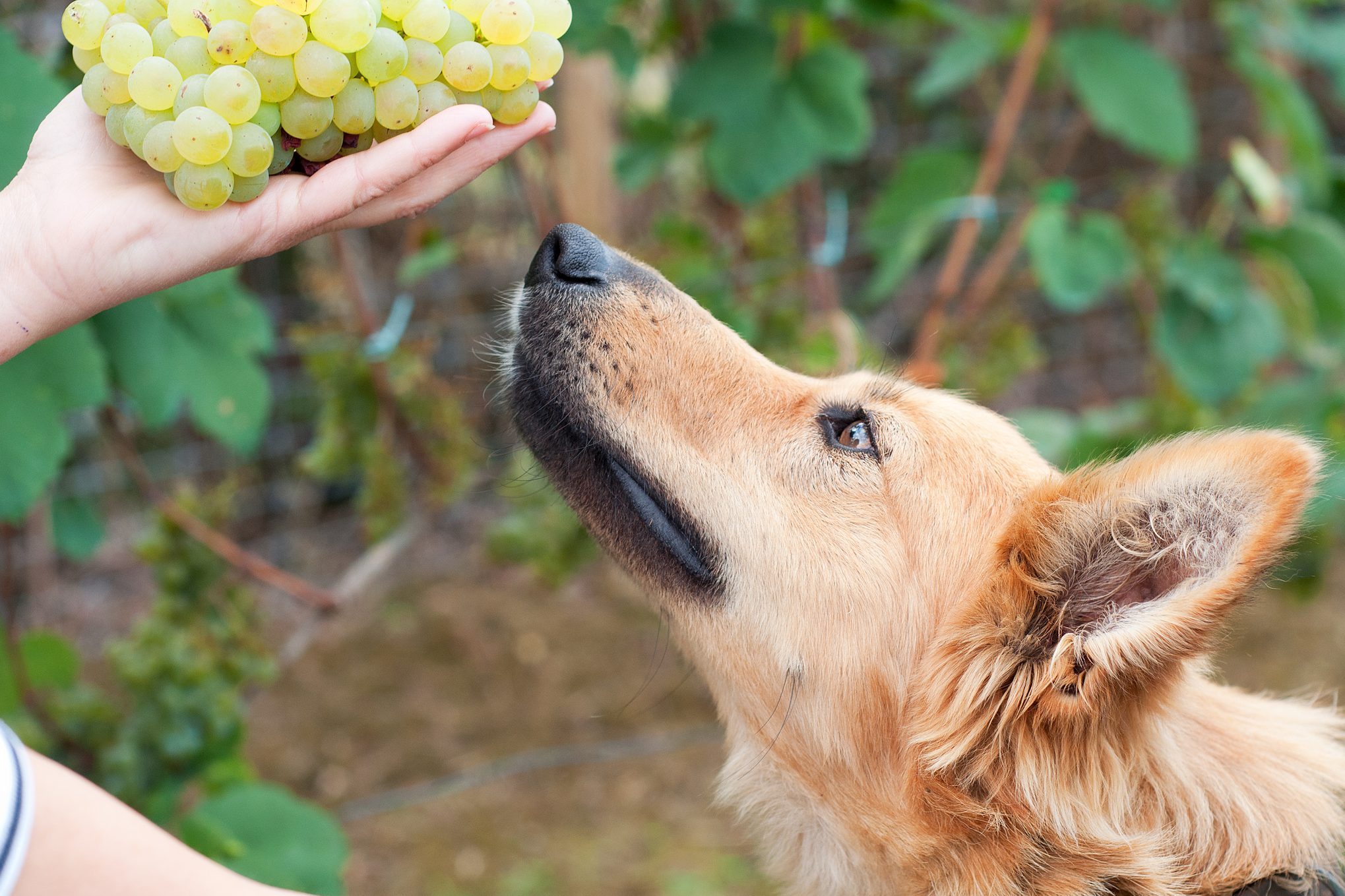Can Eating Beets Cause Red Urine?

Introduction
Have you ever eaten beets and then noticed that your urine has turned red or pink? If so, you may have been alarmed, but don't worry – this is a common occurrence that has a simple explanation. In this article, we'll explore why eating beets can cause red urine and whether or not it's something to be concerned about.
What are beets?
Beets, also known as beetroot, are a root vegetable that is often used in cooking. They are high in nutrients such as fiber, folate, manganese, and potassium, and are believed to have a range of health benefits. Beets can be eaten raw or cooked, and are often used in salads, soups, and stews.

Why do beets cause red urine?
Beets contain a pigment called betacyanin, which gives them their deep red color. When you eat beets, your body breaks down the betacyanin and excretes it in your urine. This is what causes your urine to turn red or pink.
Is red urine after eating beets normal?
Yes, it is completely normal to have red urine after eating beets. In fact, it's estimated that up to 14% of people experience this phenomenon after consuming beets. The intensity of the color can vary depending on how many beets you ate, how they were prepared, and how much water you've had to drink.

How long does red urine last after eating beets?
The duration of red urine after eating beets can vary from person to person, but it usually lasts between 12 and 24 hours. If you continue to see red or pink urine after this time period, you may want to consult a doctor to rule out any underlying medical conditions.
Can eating beets cause other health issues?
Eating beets is generally considered safe for most people, but consuming large amounts of beets can cause some health issues. Beets are high in oxalates, which can contribute to the formation of kidney stones in some people. Additionally, beets are high in nitrates, which can lower blood pressure. While this can be beneficial for some people, it can be dangerous for those with low blood pressure or who are taking medication to regulate their blood pressure.
Are there any benefits to eating beets?
Despite the potential health risks, beets do have a range of health benefits. They are high in fiber, which can help regulate digestion and lower cholesterol levels. They are also rich in antioxidants, which can help protect against cancer and other diseases. Additionally, the nitrates in beets can improve athletic performance and reduce the risk of heart disease.
Conclusion
If you've ever eaten beets and noticed red urine afterwards, don't be alarmed – it's a common occurrence that is completely normal. While eating beets can have some health risks, they also have a range of health benefits that make them a nutritious addition to your diet. As with any food, it's important to consume beets in moderation and to consult a doctor if you have any concerns about your health.
Related video of Can Eating Beets Cause Red Urine?
Can Dogs Have Grapes?

Dogs are great pets and companions. They are loyal, friendly, and always happy to be with their owners. However, as a pet owner, you must be careful with what you feed your dog. While some human foods are safe for dogs, others can be harmful and even lethal.
What Are Grapes?
Grapes are a popular fruit enjoyed by humans. They come in different colors such as green, red, and purple. Grapes are used to make wine, juice, and raisins. They are also used as a snack and a dessert. Grapes contain vitamins, minerals, and antioxidants that are beneficial to humans.
Are Grapes Safe for Dogs?

No, grapes are not safe for dogs. In fact, grapes and raisins can be toxic to dogs. The exact substance in grapes that is toxic to dogs is unknown, but it can lead to kidney failure and even death in some cases.
What Are the Symptoms of Grape Toxicity in Dogs?

The symptoms of grape toxicity in dogs may vary depending on the amount of grapes consumed and the size of the dog. Some common symptoms include vomiting, diarrhea, abdominal pain, loss of appetite, lethargy, and dehydration. If you notice any of these symptoms in your dog after consuming grapes or raisins, consult your veterinarian immediately.
What Should You Do If Your Dog Eats Grapes?

If your dog eats grapes or raisins, take them to the veterinarian immediately. Time is of the essence, and the sooner your dog receives treatment, the better their chances of recovery. The vet may induce vomiting to remove any remaining grapes in the stomach or provide supportive care such as intravenous fluids and medications.
What Are Some Safe Alternatives to Grapes for Dogs?

There are many safe and healthy alternatives to grapes that you can give your dog. Some examples include apples, bananas, blueberries, carrots, and watermelon. These fruits are low in calories and high in vitamins and antioxidants that are beneficial to your dog's health.
Conclusion
In conclusion, grapes and raisins are not safe for dogs. If your dog accidentally eats grapes, take them to the vet immediately. It is always better to be safe than sorry when it comes to your dog's health. Stick to safe and healthy alternatives such as fruits and vegetables that are beneficial to your dog's health.
Related video of Can Dogs Have Grapes?
Can Dogs Eat Grapes?

As a pet owner, it's essential to know what kind of food is safe for your furry friend. Dogs are known to be curious creatures, and sometimes they may eat things that are not meant for them. Grapes are one of the most commonly eaten fruits, but can dogs eat grapes? This article will provide you with all the information you need to know about feeding grapes to your dog.
What are Grapes?

Grapes are juicy, sweet fruits that grow in clusters on vines. They come in different colors, including green, red, and purple. Grapes are packed with vitamins and antioxidants, making them a healthy snack for humans.
Are Grapes Safe for Dogs to Eat?

No, grapes are not safe for dogs to eat. Grapes, along with raisins and currants, are toxic to dogs and can cause kidney failure. Even a small amount of grapes can be harmful to your furry friend. Symptoms of grape toxicity include vomiting, diarrhea, lethargy, and decreased urine output.
Why are Grapes Toxic to Dogs?

The exact reason why grapes are toxic to dogs is still unknown. Some researchers suggest that it may be due to a mycotoxin found in grapes. Others believe that it may be because of the high sugar content in grapes, which can lead to digestive issues and kidney problems.
What Should You Do if Your Dog Eats Grapes?

If your dog eats grapes, raisins, or currants, you should take them to the vet immediately. Even if your dog shows no symptoms, it's best to err on the side of caution. Your vet may induce vomiting to remove any remaining grapes from your dog's stomach.
What Fruits Can Dogs Eat?

While grapes are toxic to dogs, there are plenty of other fruits that are safe and healthy for them to eat. Some of these fruits include:
- Apples
- Blueberries
- Bananas
- Strawberries
- Watermelon
Remember to always remove any seeds, pits, or cores before feeding fruit to your dog. These parts can be a choking hazard or cause digestive issues.
Conclusion
In conclusion, dogs should not eat grapes. Grapes are toxic to dogs and can cause kidney failure. If your dog accidentally eats grapes, raisins, or currants, take them to the vet immediately. There are plenty of other fruits that are safe for dogs to eat, so don't hesitate to give your furry friend a healthy treat. Remember to always do your research before feeding your dog any new food.
Related video of Can Dogs Eat Grapes?
Can Dogs Eat A Little Bit Of Chocolate

Introduction
Chocolate is one of the most popular treats in the world, and many people love to share it with their furry friends. However, is it safe for dogs to eat chocolate? The answer is not straightforward, as chocolate can be toxic to dogs in large amounts. In this article, we will explore the relationship between dogs and chocolate and whether it is safe for them to indulge in a little bit of this treat.
Why Is Chocolate Harmful To Dogs?

Chocolate contains a compound called theobromine, which is toxic to dogs. Theobromine is similar to caffeine and can cause various health problems in dogs, including vomiting, diarrhea, seizures, and even death. The amount of theobromine in chocolate depends on the type of chocolate and the amount consumed.
Types Of Chocolate

There are three main types of chocolate: milk chocolate, dark chocolate, and white chocolate. Milk chocolate contains the least amount of theobromine and is the safest for dogs to consume in small amounts. Dark chocolate and white chocolate, on the other hand, contain higher amounts of theobromine and are more dangerous for dogs to eat.
How Much Chocolate Is Too Much?

The amount of chocolate that is toxic to dogs depends on their size and the type of chocolate consumed. As a general rule, the darker the chocolate, the more toxic it is. A small amount of milk chocolate is unlikely to cause any harm to a large dog, but even a small amount of dark chocolate can be deadly to a small dog.
Symptoms Of Chocolate Poisoning In Dogs

If your dog has consumed chocolate, be on the lookout for the following symptoms of chocolate poisoning:
- Vomiting
- Diarrhea
- Increased thirst
- Restlessness
- Hyperactivity
- Seizures
- Irregular heartbeat
- Difficulty breathing
What To Do If Your Dog Eats Chocolate
If you suspect that your dog has eaten chocolate, it is essential to act quickly. Contact your veterinarian immediately and provide them with information on the type and amount of chocolate consumed. Your veterinarian may recommend inducing vomiting or hospitalization, depending on the severity of the situation.
Alternatives To Chocolate For Dogs

If you want to treat your dog, there are many safe alternatives to chocolate, such as:
- Peanut butter (without xylitol)
- Carrots
- Apples
- Blueberries
- Pumpkin
- Plain popcorn
- Unseasoned cooked chicken
Conclusion
While dogs may enjoy the taste of chocolate, it is not safe for them to consume in large amounts. Even a small amount of chocolate can be toxic to dogs, and owners should be aware of the symptoms of chocolate poisoning. It is always best to play it safe and avoid giving your furry friend any chocolate. Instead, try some of the many dog-friendly alternatives available.
Related video of Can Dogs Eat A Little Bit Of Chocolate
Can Deaf People Hear Their Thoughts?

Have you ever wondered if deaf people can hear their own thoughts? It's a fascinating question, and one that has puzzled many people for years. The answer, however, is not as straightforward as you might think.
What Is Deafness?

Deafness is defined as a partial or complete loss of hearing. It can be caused by a variety of factors, including genetics, infections, and exposure to loud noises. People who are deaf may communicate using sign language, written language, or other forms of communication.
How Do Deaf People Think?
Deaf people think in the same way as hearing people do, but their thought processes may be different. For example, deaf people who communicate using sign language may think in visual and spatial terms rather than in auditory terms.
Research has shown that the part of the brain that processes language is the same in deaf people as it is in hearing people. However, the way that the brain processes information may be different, depending on the person's level of deafness and their communication style.
Can Deaf People Hear Their Thoughts?

The answer to this question is not as straightforward as you might think. While deaf people cannot hear their thoughts in the same way that hearing people can, they still experience internal monologue in the form of visual and spatial thoughts.
Deaf people may also experience thoughts in the form of vibrations or sensations, rather than auditory sounds. This is because the brain processes information in a different way when it is not receiving auditory input.
Conclusion
So, can deaf people hear their thoughts? The answer is both yes and no. While they may not experience their thoughts in the same way that hearing people do, they still have an internal monologue that helps them navigate the world around them.